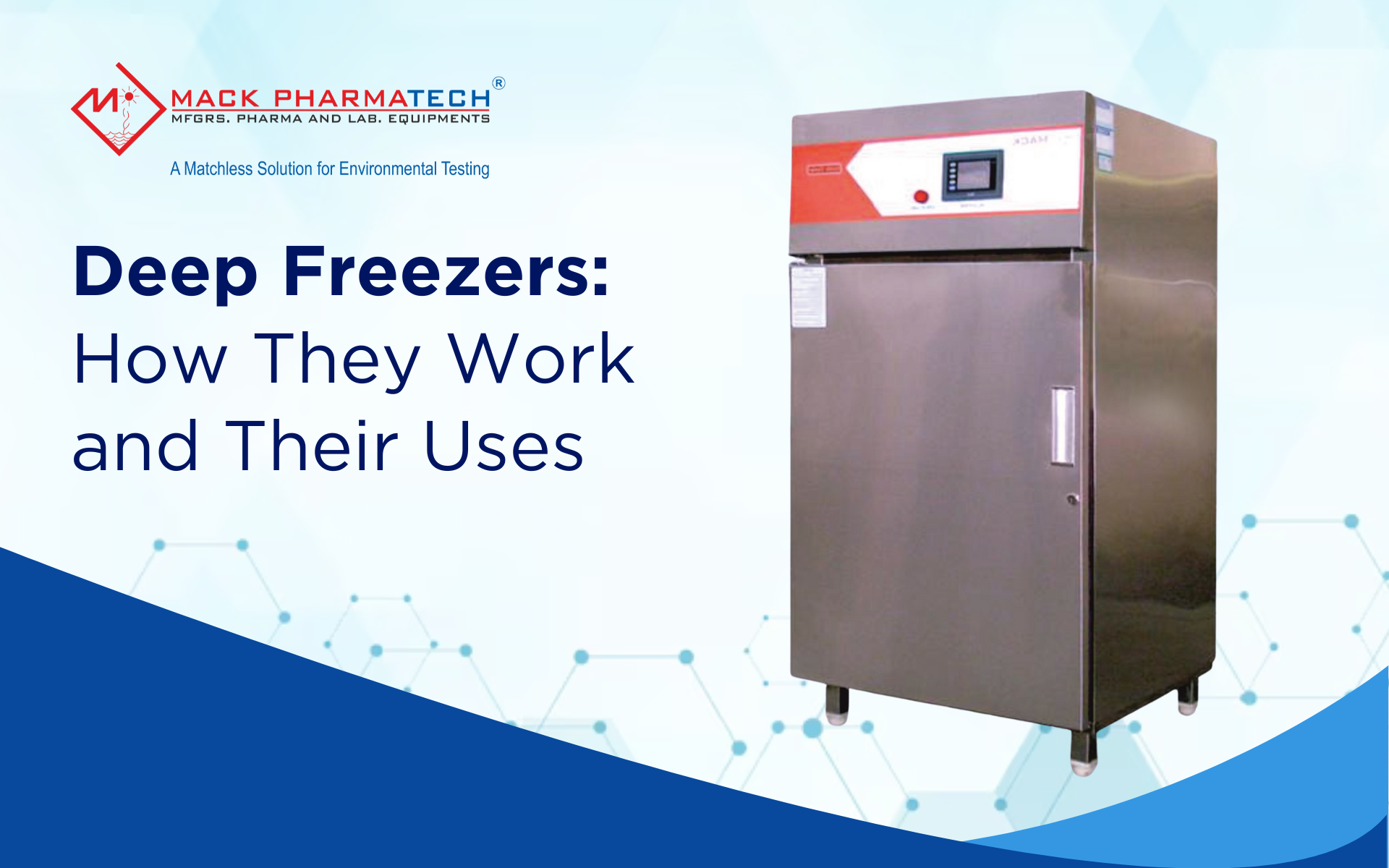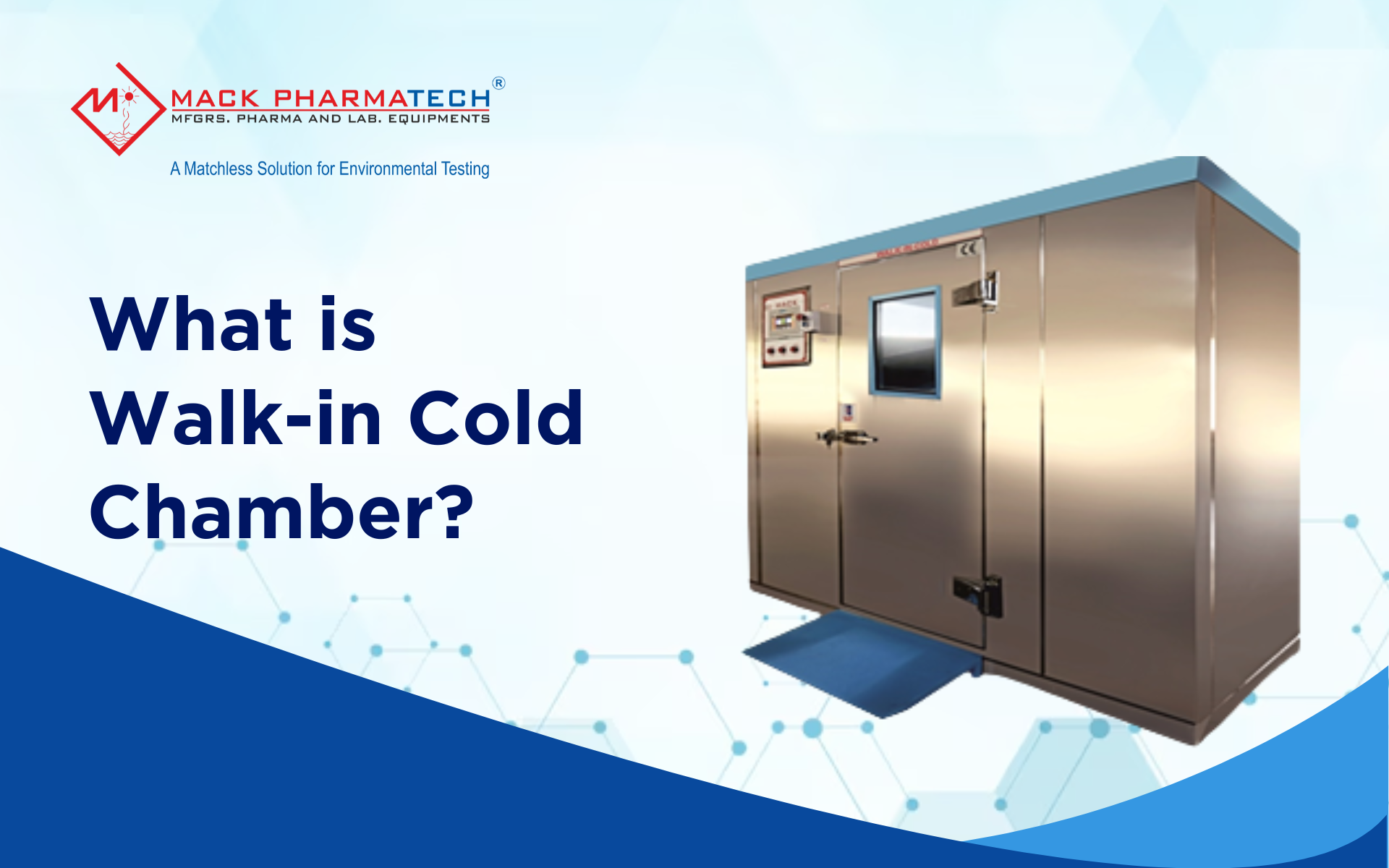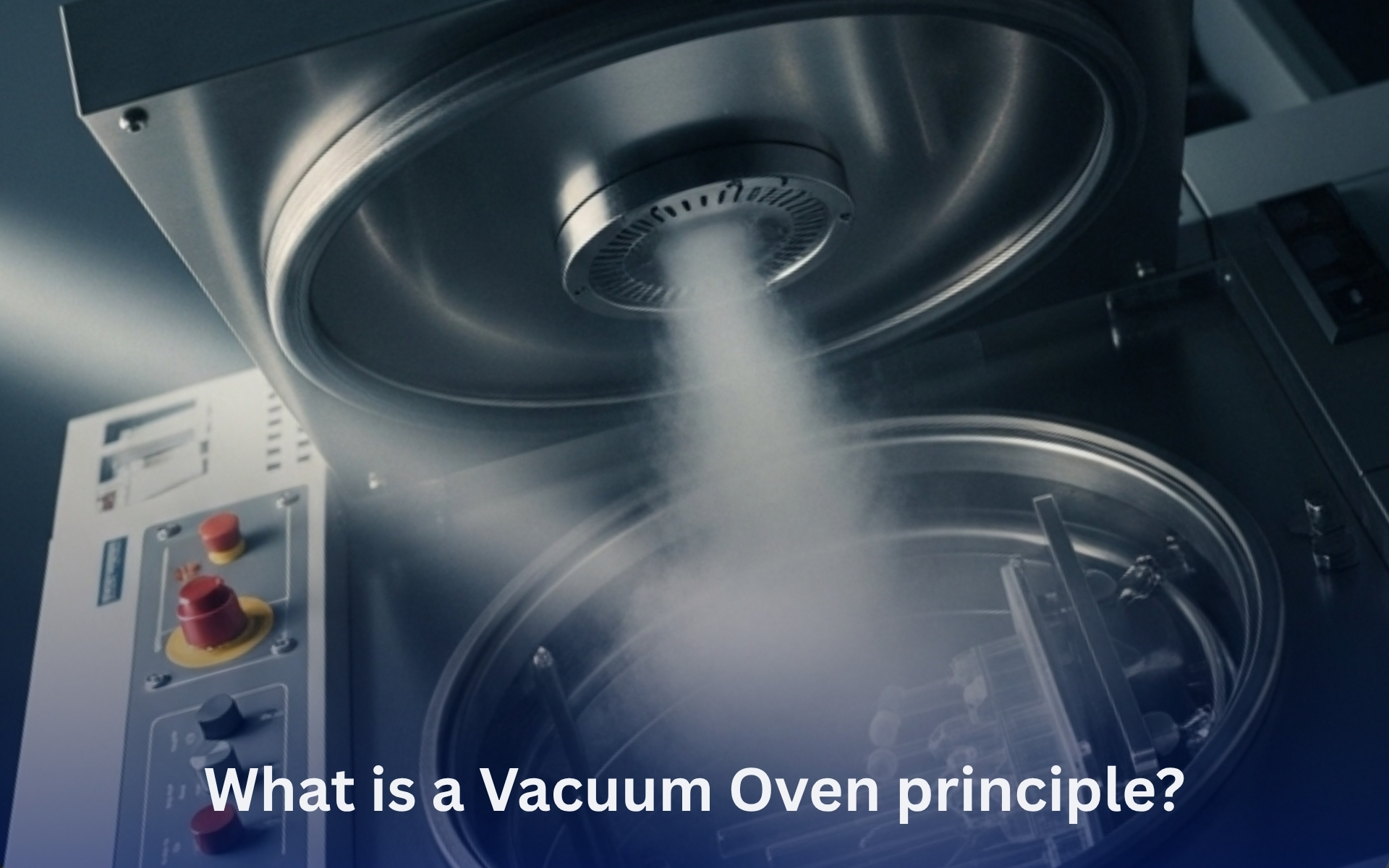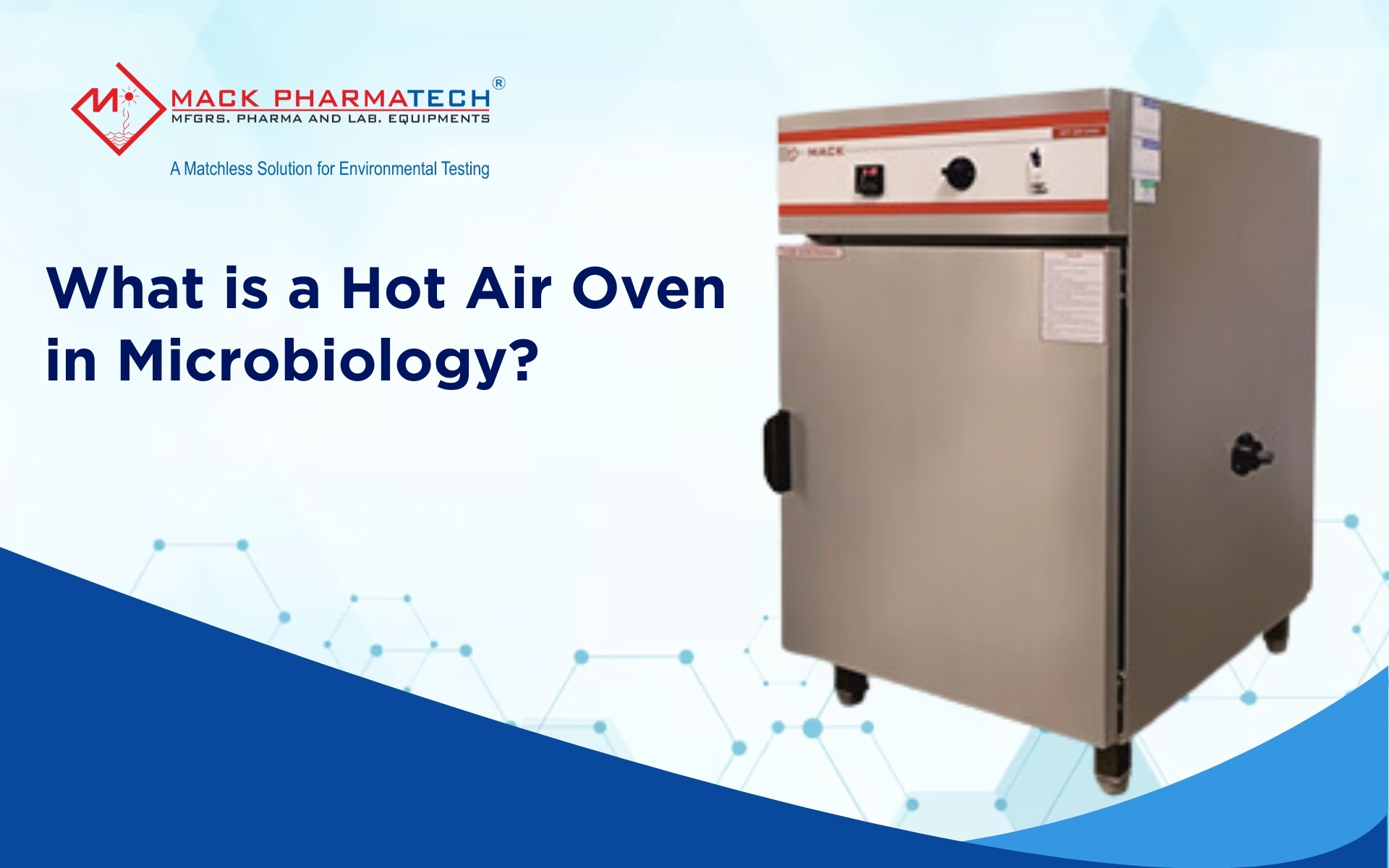Laboratory refrigerators are designed to store biological samples, chemical mixtures, and drugs. These days, refrigerators come with a variety of features and options, depending on the customer's requirements and the manufacturer. All models may have different temperature ranges. Along with refrigerators and freezers, there are two separate compartments for freezing and refrigeration.
Choosing the right refrigerator for your laboratory is an important task that can help you maintain quality control and consistent production of your products. Choosing the right refrigerator is a very important part of managing your day-to-day operations and maintaining the trust of your clients if you run a laboratory or hospital and use such equipment. Mack Pharma Tech is one of the leading medical and laboratory equipment suppliers in India where you can buy the best quality laboratory refrigerators or deep freezers at competitive prices.
You might think that choosing any home refrigerator that looks the best is as simple as that. However, there are several things to consider before purchasing any unit for the lab. Keep the following points in mind while choosing a laboratory refrigerator.
Important Factors For Choosing a Laboratory refrigerators
Temperature range
When it comes to choosing the right cooling unit for your lab, its temperature range is the main concern to keep in mind. Make sure the refrigerator can reach and maintain the temperature range you need. Some laboratory refrigerators are designed to operate at extremely low temperatures, while others are designed for more moderate ranges. Additionally, a constant temperature is necessary to maintain the integrity of your samples and materials. If the temperature fluctuates too much, it can cause damage or degradation, potentially it can compromising your experiment or research. Additionally, a stable temperature is important to maintain the integrity of your samples and materials. Different samples and materials may require different storage temperatures, so it's important to choose a freezer that meets your specific needs.
Cooling requirements depend on your work environment. In general, refrigerators range from,-5° to -80°c temperature. However medical and biological laboratory settings may have different requirements depending on what is to be kept in the freezing compartment. For example- if you are looking to buy a lab refrigerator for storing blood samples, you can buy one with a temperature range of 1 degree to 8 degrees Celsius. It is advisable to double-check your requirements before deciding to buy any unit
Capacity
Your storage demands should be taken into account when selecting a laboratory refrigerator, as the way you store your device can have an impact on its temperature performance. Always consider the size and capacity of the refrigerator first if you want to save space on a manageable unit. If you choose a freezer that's too big, you'll be paying for space you don't need, which can waste resources. Additionally, larger freezers can be more expensive to buy and operate, as they usually consume more energy. If you choose a freezer that's too small, you may run out of room and be unable to store all of your stuff, which can be inconvenient and compromise your experiments or research. Therefore, it is necessary to carefully consider the freezer's capacity and choose the right size model according to your needs.
Medical refrigerators work best when loaded between 30% and 80% because empty refrigerators experience large temperature fluctuations from top to bottom of the unit. In this case, cold air cannot circulate properly, which can cause hot spots that damage the stored samples.
Usability
How to use or handle a laboratory refrigerator is also one of the important factors when you buy any laboratory refrigerator unit or deep freezer. There is an easy way to check usability. You may ask yourself if you can bring the device to the lab and if you need staff help to have convenient access to it every day.
Ensure sufficient space access is available for that laboratory equipment. It is best to consider all the spatial limitations of your laboratory. Check that you can open the unit doors properly. When you open the doors, make sure they don't interfere with anything available in the lab. Although you can't fully prepare for every scenario, you can avoid unexpected issues by verifying floor space and equipment dimensions in advance.
Door type
Nowadays, many laboratory refrigerators have glass doors, so we can see the contents of the refrigerator without opening the door. However, these doors can also sometimes overheat, so you may need to maintain a constant temperature. You may want to consider this. So you should also consider the orientation of the door according to the space you have.
The alarm
Some refrigerators have built-in alarms. when you want to store temperature-sensitive materials then this is especially important for you In this, we can set an alert. These can alert you if the temperature falls out of a certain range. Also, if you want to secure your samples or materials, you can look for a refrigerator with a lockable door.
Energy efficiency
Many laboratory refrigerators are now available with an Energy Star rating, indicating that they meet high energy efficiency standards. Energy efficiency is important in laboratory refrigerators because it can help reduce energy costs and reduce environmental impact. These units are generally more efficient than non-rated models and can help save you money on energy costs over time.
Choosing a refrigerator with a high energy efficiency rating can reduce energy use and save money on energy bills. Additionally, using energy-efficient appliances can help reduce your carbon footprint and contribute to a more sustainable future.
What are the Different Types of Laboratory Refrigerators
1. Standard upright freezers
Standard upright refrigerators are designed to function like conventional home refrigerators. They are commonly used for general-purpose storage of laboratory items. They typically have temperature control systems, door storage sections, and movable shelves. A variety of things can be kept in these refrigerators at temperatures above freezing.
2. Refrigerators that fit under counters
Undercounter refrigerators are small appliances made to nestle under lab benches or counters, making the most use of available space in cramped or tiny labs. Their features are comparable to those of conventional upright refrigerators, however, they are more easily placed in laboratories with limited space due to their smaller profile.
3. Refrigerators for pharmacies
Prescription drugs, boosters, and other temperature-sensitive pharmaceuticals are kept in pharmacy freezers, which are made especially for this purpose. To guarantee adherence to legal mandates like the CDC's vaccine storage recommendations, they frequently come equipped with precise temperature control systems, temperature monitoring, and alarm systems.
4. Explosion-Proof Freezers
The purpose of explosion-proof refrigerators is to stop flammable gasses or vapours in dangerous laboratory settings from igniting. In volatile environments like chemical laboratories, these freezers' spark-proof interiors, unique seals, and ventilation systems reduce the possibility of explosions.
5. Refrigerators for blood banks
Refrigerators for blood banks are specially worked to keep Blood products, plasma, and other biological materials at regulated temperatures in blood bank refrigerators. For transfusion reasons, they usually keep the temperature between 1°C and 6°C to protect the integrity of blood components. Blood
6. Freezers with Ultra-Low Temperatures (ULT)
Long-term storage of samples, enzymes, vaccines, and other biological materials at extremely low temperatures typically between -40°C and -86°C is accomplished using ultra-low temperature freezers. These freezers use cutting-edge cooling and insulating technology to sustain steady, low temperatures that are necessary to protect sample integrity.
7. Flammable Material Refrigerators
In laboratory settings, flammable or volatile chemicals and solvents are stored safely in flammable material refrigerators.
If you are looking for pharmaceutical refrigerator manufacturers in India or laboratory refrigerators and other accessories to go along with refrigerators, Mack Pharma Tech is one of the renowned manufacturers. We specialise in manufacturing laboratory equipment and have a wide range of options to meet all your needs. Check it out today!
If you are looking for pharmaceutical refrigerator manufacturers in India or laboratory refrigerators and other accessories to go along with refrigerators, Mack Pharma Tech is one of the renowned manufacturers. We specialise in manufacturing laboratory equipment and have a wide range of options to meet all your needs. Check it out today!




.png)





